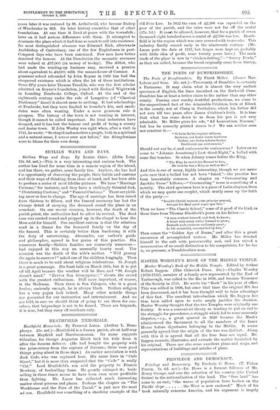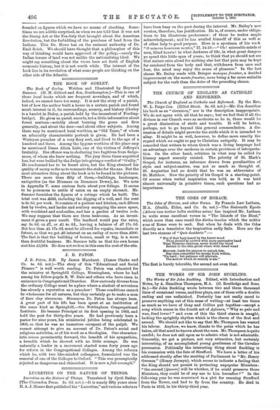PRIVILEGE AND DEMOCRACY.
Privibige and Democracy. By Frederic C. Howe. (T. Fisher Unwin. 7s. 6d. net.)—Dr. Howe is a fervent follower of Mr. Henry George, and sees the salvation of his country (the United States) in the nationalisation of the land. The "free land" has come to an end ; "the waves of population have broken on the
Pacific slope the West is now enclosed." Much of his book naturally concerns America, and his argument is largely founded on figures which we have no means of checking. Some- times we are a little surprised, as when we are told that it was not the Stamp Act or the Tea-duty that brought aboat the American Revolution, but the forbidding of the purchase of land from the Indians. This Dr. Howe has on the eminent authority of Dr. Emil Reich. We should have thought that a philosopher of this way of thinking would have approved of the policy,—surely the Indian tenure of land was not unlike the nationalising ideal. We might say something about the views here set forth of English economic history, but it is not worth while. The interest of the book lies in its revelation of what some people are thinking on the other side of the Atlantic.



























































 Previous page
Previous page